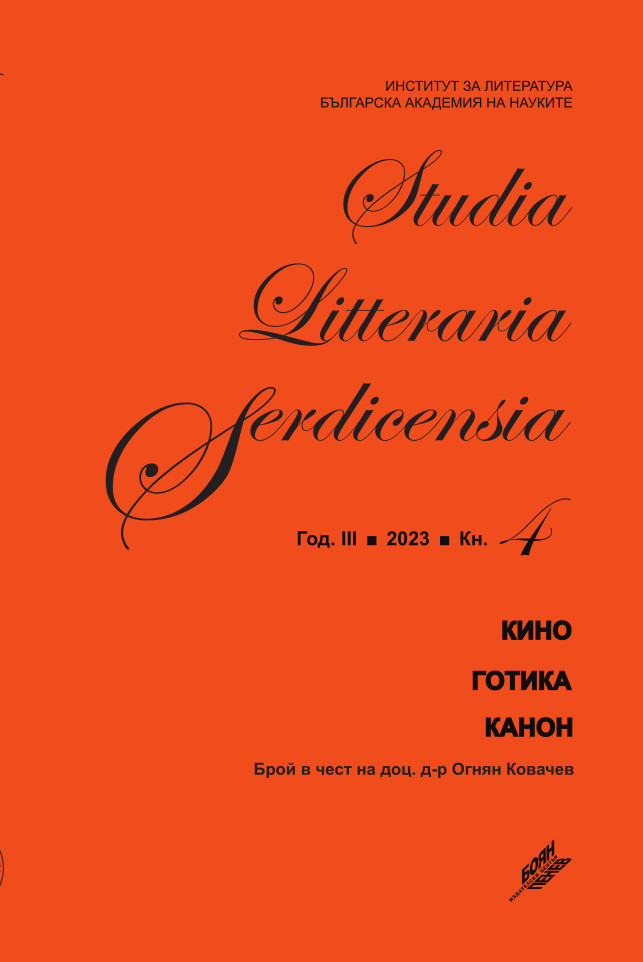The paper examines several testimonies from Plato (from the dialogues “Laws”, “Protagoras” and “Phaedrus”), as well as several key verses from Theognis, which contribute to delineating certain characteristics of early canonizing thought in the field of the literature. There is a prioritization of poetry over prose and works that are examples of transmitting a model of virtue are more highly valued, whether from the position of the philosopher taking on the role of a literary critic, or of the author himself. More often, these works are ancient, but it is not impossible for a similar status to be attributed to contemporary works of the commenter, including own works. Until Aristotle, there is still a lack of real reflection on the artistic characteristics of highly valued literary genres/individual poets, insofar as emphasis is put both on the educational role (towards achieving general virtue) of the commented poetic examples and on the variability of receptive situations and the individual preferences and abilities of the recipients. However, a certain openness and liberality of the discourse on literary production and reception is also found, allowing the aesthetic and ethical benefit of the perception of works from different genres. This legitimizes Ancient Greek literature, along with similar theoretical reflections within its framework, as rightly recognized as canonical in its entirety.
Are the “Canons” of Antiquity Sublime?
-
YEAR: КНИГА 4PUBLISHED ON :
PUBLISHER: INSTITUTE FOR LITERATUREISSN (Print): 2738-7631ISSN (Online): 2815-2999
-
-
- NAME: Nevena Panova
- INVERSION: Panova, Nevena
- E-MAIL: [email protected]
- INSTITUTION: Sofia University “St. Kliment Ohridski”
- COUNTRY: Bulgaria
- ORCID: 0000-0002-6260-3857
- WEB OF SCIENCE: 2263673
Невена Панова (1974) е доцент по старогръцка литература в СУ „Св. Клиент Охридски“. Завършила е Класическа филология и Унгарски език и литература в СУ (1999), както и магистратура по философия (МП „Език и публичност“) в НБУ (2019). Научните ѝ интереси са в областта на старогръцката философска проза и на жанровата теория и история, както и на проблемите на устността в античната култура и на рецепцията на античното в съвременните български литература и изкуство. Автор е на книгите „Платоновият диалог. Ситуации и елементи на събеседването“ (Сонм, 2005) и „Мимеополис: върху Платоновата политическа и литературна теория на подражанието“ (Сонм, 2012).
-
-
 ABSTRACT
ABSTRACTThe paper examines several testimonies from Plato (from the dialogues “Laws”, “Protagoras” and “Phaedrus”), as well as several key verses from Theognis, which contribute to delineating certain characteristics of early canonizing thought in the field of the literature. There is a prioritization of poetry over prose and works that are examples of transmitting a model of virtue are more highly valued, whether from the position of the philosopher taking on the role of a literary critic, or of the author himself. More often, these works are ancient, but it is not impossible for a similar status to be attributed to contemporary works of the commenter, including own works. Until Aristotle, there is still a lack of real reflection on the artistic characteristics of highly valued literary genres/individual poets, insofar as emphasis is put both on the educational role (towards achieving general virtue) of the commented poetic examples and on the variability of receptive situations and the individual preferences and abilities of the recipients. However, a certain openness and liberality of the discourse on literary production and reception is also found, allowing the aesthetic and ethical benefit of the perception of works from different genres. This legitimizes Ancient Greek literature, along with similar theoretical reflections within its framework, as rightly recognized as canonical in its entirety.
SUBJECT

